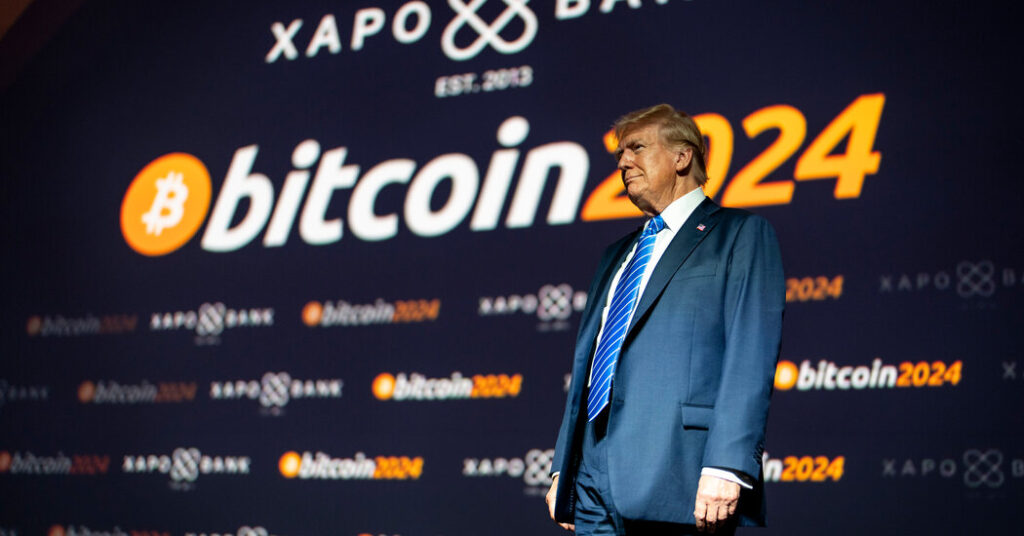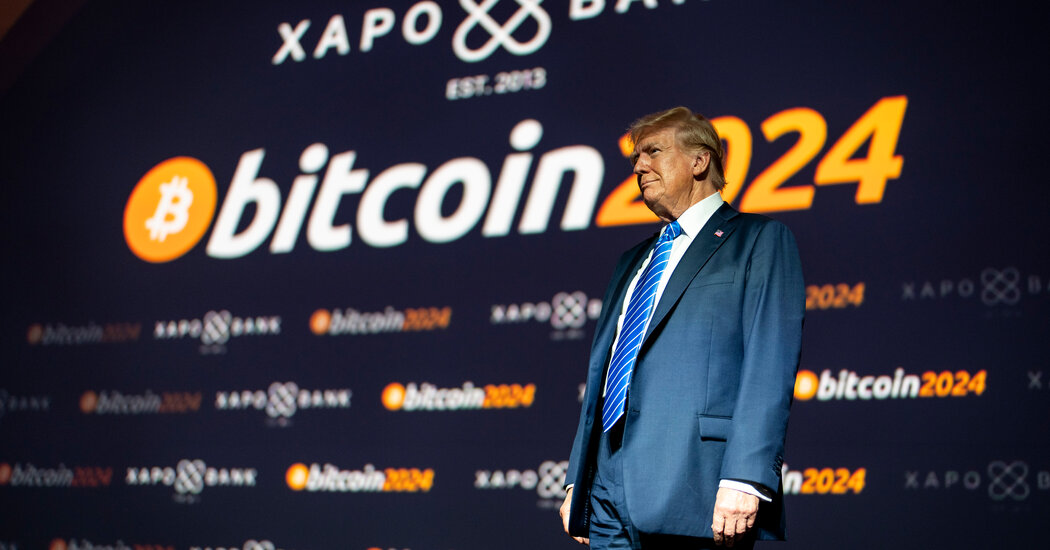Trump Issues Executive Order to Boost Cryptocurrency Industry
The order signaled that the president intends to promote an industry that faced scrutiny during the Biden administration — and that he has a personal stake in.


President Trump on Thursday issued an executive order to support the growth of the cryptocurrency industry, calling for a new plan to regulate a business in which he has substantial personal investments.
The executive order, which was light on details, said the Trump administration would create a working group on digital assets to come up with a comprehensive plan including “regulatory and legislative proposals.” The group would also consider establishing a national cryptocurrency stockpile, the order said — a government-controlled stash of digital coins that the industry has spent months lobbying the new administration to create.
“The digital asset industry plays a crucial role in innovation and economic development in the United States, as well as our nation’s international leadership,” the order said. “It is therefore the policy of my administration to support the responsible growth and use of digital assets.”
Mr. Trump has a significant personal stake in the success of the crypto industry. He and his sons last year helped start a crypto company called World Liberty Financial, which is selling a new digital currency called WLFI. This month, he and his wife, Melania, each began selling memecoins, a type of cryptocurrency inspired by an online joke or celebrity mascot.
The ventures have drawn criticism from ethics experts concerned about conflicts of interest. In effect, Mr. Trump is trying to write the rules for business ventures from which he may personally profit. He has vowed to end the Biden administration’s legal crackdown on crypto companies and made a series of personnel selections at key federal agencies that appear poised to boost the crypto industry’s prospects.
In the executive order, Mr. Trump said his administration was committed to “protecting and promoting” the crypto industry. He promised “fair and open access to banking services,” a response to complaints by crypto companies that banks have denied them accounts. And shortly after the order was issued, the Securities and Exchange Commission rolled back accounting guidance that had deterred banks from getting involved with crypto.






